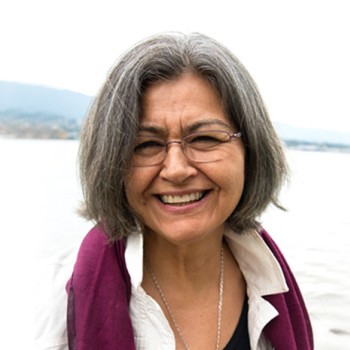Last updated on
This article may trigger some people. If you need emotional support or are looking for information on mental health resources or services, call the KUU-US Crisis Line at 1-800-KUU-US17 (588-8717) to get culturally safe support services for First Nations and Indigenous people. You can also contact the Indian Residential School Survivors Society toll-free by calling 1 (800) 721-0066, or (866) 925-4419 for the IRSSS 24-hour crisis line.
When people experience trauma early in life, it can affect how their brain develops. It can damage their ability to have healthy relationships, and it can lead to seek ways of coping with their pain, like using substances.
These impacts of trauma can cast a long shadow on a person’s life and relationships. They can affect partners, families and be passed on to children, and even children’s children. This is known as intergenerational trauma.
For Indigenous people in Canada, colonialism has been a major source of intergenerational trauma. The Indian Residential School system is one example that led to intergenerational trauma for Indigenous people.
Residential schools separated Indigenous children from their families by force. Children were separated from their cultures, languages, and communities. Physical, emotional, and sexual abuse were widely experienced, and many children did not survive.
Researchers are still learning how trauma is passed from one generation to the next, but the Truth and Reconciliation Commission report highlights that substance use in Indigenous communities can be a result of trying to cope with traumatic experiences. This can lead to health and social problems that can span across generations.
The final report of the Truth and Reconciliation Commission, which was set up to raise awareness of the impact of the residential school system in Canada, states, “Many students who spoke to the Commission said they developed addictions as a means of coping” with the traumatic events they experienced.
Patricia Vickers is a teacher, artist, psychotherapist and neurofeedback clinician. As someone who faced the intergenerational trauma of residential schools, Patricia says it was very difficult to find the right support when she needed it. In a 2019 interview for StopOverdoseBC, she highlighted that the discrimination that led to the residential school system also influences how non-Indigenous people see the challenges facing Indigenous communities today.
“When I was in therapy 20 or 25 years ago, I had to look a long way to find people who had any understanding of Indigenous history and its impact,” Patricia says. “The colonial rhetoric is still alive and well, which is the idea that we have violence in our families and communities because we’ve been conditioned to believe we’re less than human, or inferior, as Indigenous Canadians.
“The recent research on how trauma affects the brain and behaviour solidly refutes that. As an Indigenous person, that was really important to me.”
Patricia says that as we have learned more about the effects of trauma, people have become more aware of the connection between colonialism, intergenerational trauma and substance use challenges for Indigenous people. This awareness has led to better ways of treating and supporting people experiencing addiction.
“There are now so many more therapists and clinicians who have an understanding of Canadian history, and with all the research that has been done on the brain, there are so many ways to help individuals to heal from their trauma.”
However, she highlights there is still much work to be done – grounding health care services in compassion, supporting people to resolve traumatic experiences, and building cultural safety and traditional practices into treatment.
“The services that are required are extensive. But eventually, when families begin to heal, it will all shift.”
Get Help
Find the right supports for yourself and your loved ones. Learn about First Nations treatment centres.
Learn about supports for survivors of residential schools and survivors of intergenerational trauma, and find wellness and healing services through the Indian Residential School Survivors Society.
More learning:
Resources
Showing 2 Resources
Indian Residential Schools Resolution Health Support Program
Provides mental health, emotional and cultural support services to eligible former Indian Residential School students and their families throughout all phases of the Indian Residential School Settlement Agreement
National Indian Residential School Crisis Line
Offers a 24-hour crisis line to former Indian residential school students and their families across Canada.
